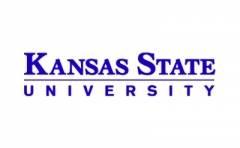
Read more about our ranking methodology.
Manhattan, KS 66506
* These statistics utilize the most recently released data from IPEDS (Integrated Postsecondary Education Data System)
Sources for school statistics and data include U.S. Department of Education's National Center for Education Statistics and the Integrated Postsecondary Education Data System. Data may vary depending on school and academic year.


- Dietetics (DIET) - Coordinated Program in Dietetics
- Dietetics (DIETI) - Dietetic Internship
- Didactic Program in Dietetics
- Professional Psychology (IPSY) - Predoctoral internship programs (Counseling Services)
- Speech-Language Pathology (SLP) - Graduate degree programs
- Veterinary Medicine (VET) - Programs leading to a D.V.M. or D.M.V. degree (College of Veterinary Medicine)
- Public Health Programs (PHPBG) - Baccalaureate and Graduate level programs offered outside a school of public health
- Teacher Education (TED) - Baccalaureate and graduate programs for the preparation of teachers and other professional personnel for elementary and secondary schools
- English Language (English Language Program)
Source data obtained from U.S. Department of Education's Office of Post-secondary Education (OPE)

What letter grade would you give your school on how well it prepares students for a career in the real world?
Based on 6 ReviewsWhat letter grade would you give the students/culture at your school?
Based on 6 ReviewsWhat letter grade would you give the facilities at your school.
Based on 5 ReviewsWhat overall letter grade would you give the activities/groups at your school?
Based on 4 ReviewsThere are no questions and answers about Kansas State University
